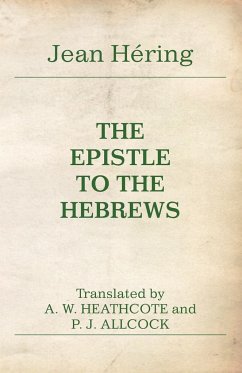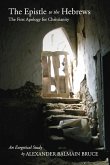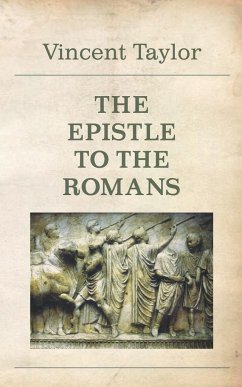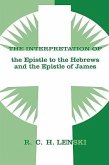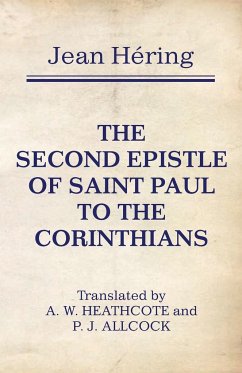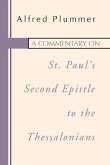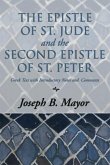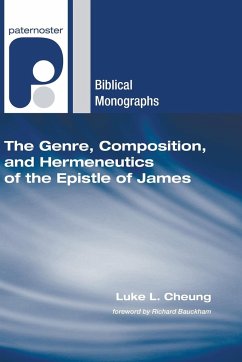Professor Jean Hering, who died in February 1966, had been intimately connected with the Protestant Faculty of Theology at the University of Strasbourg for thirty years. The originality and profundity of his learning made him one of the most influential of its scholars. In earlier years he had specialized in philology. He had been also an ardent, though not uncritical, disciple of Husserl and always retained an interest in phenomenology. For a time he had occupied a Chair of Ethics, prior to his Chair of Theology. Until his death he was a Joint Director of the internationally famous Revue d'histoire et de philosophie religieuses, to which he made frequent contributions. His main interest for the greater part of his career was in New Testament studies. The three commentaries which he produced have been esteemed as amongst the best in the French language. The commentary of the First Epistle of Saint Paul to the Corinthians was made available in an English translation by Epworth Press in 1962. This was followed in 1967 by the translation of the commentary on Second Epistle to the Corinthians. The trilogy is completed by the work here presented. The same conciseness and clarity will be found as in the two preceding commentaries, together with that meticulous care for philology which was typical of the writer. For all that, the broader and more practical relevance of detailed exegesis is not forgotten--nor the spiritual profit to be had from it. The student is given clear guidance for the study of the text whether he is working with Greek or English. The more advanced scholar will appreciate the balanced judgment which is brought to bear upon difficult passages, and the fresh solutions which are often proposed. In agreement with the author's wishes, Dr. Heathcote has provided a fresh translation of the text of the Epistle, making use of the French version given by Professor Hering himself and embodying also the critical decisions reached in the body of the Commentary. Professor Jean Hering, who died in February 1966, had been intimately connected with the Protestant Faculty of Theology at the University of Strasbourg for thirty years. The originality and profundity of his learning made him one of the most influential of its scholars. In earlier years he had specialized in philology. He had been also an ardent, though not uncritical, disciple of Husserl and always retained an interest in phenomenology. For a time he had occupied a Chair of Ethics, prior to his Chair of Theology. Until is death he was a Joint Director of the internationally famous Revue d'histoire et de philosophie religieuses, to which he made frequent contributions.
Hinweis: Dieser Artikel kann nur an eine deutsche Lieferadresse ausgeliefert werden.
Hinweis: Dieser Artikel kann nur an eine deutsche Lieferadresse ausgeliefert werden.

